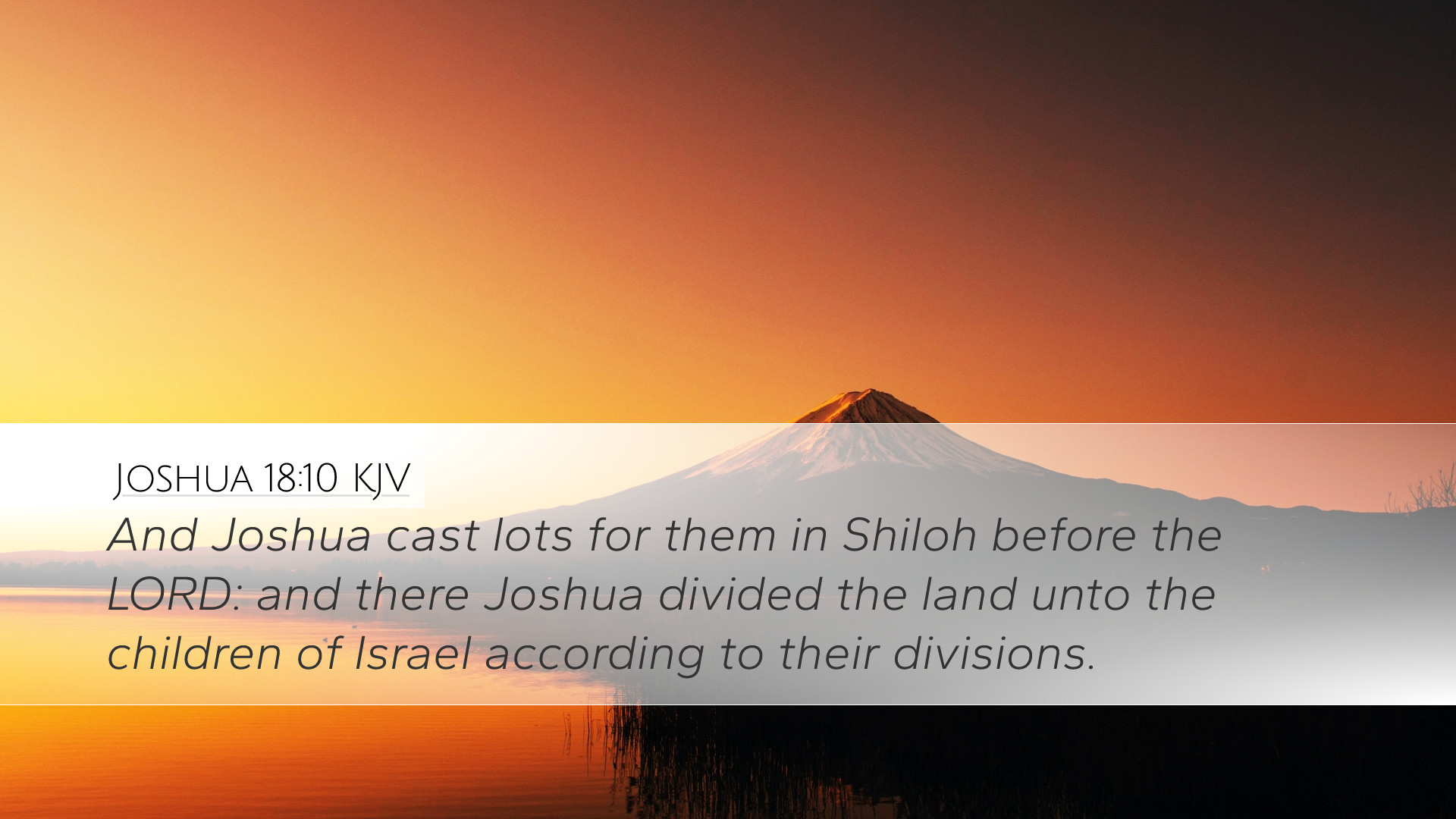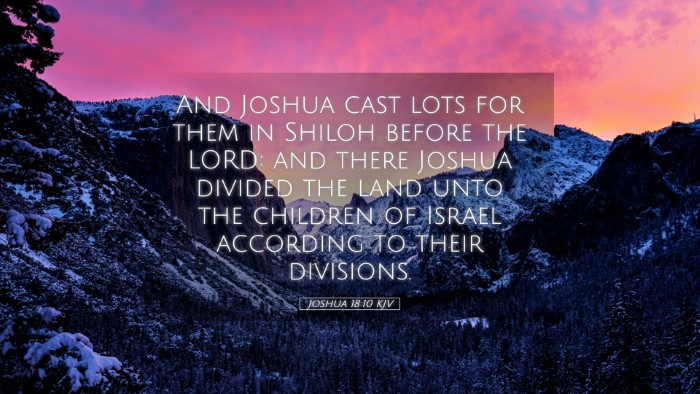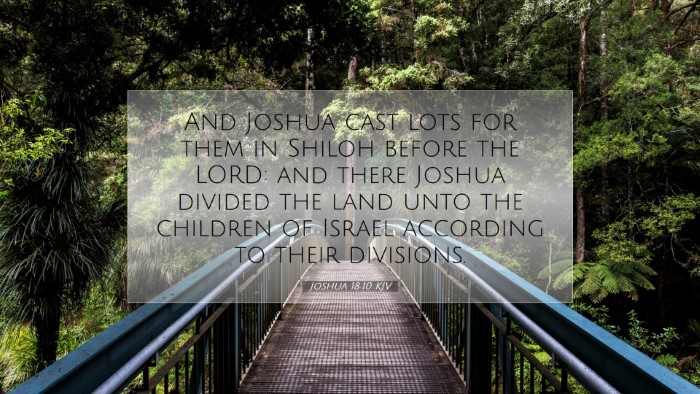Commentary on Joshua 18:10
Text: "And Joshua cast lots for them in Shiloh before the Lord: and there Joshua divided the land unto the children of Israel according to their divisions." (Joshua 18:10)
Introduction
This pivotal moment in the book of Joshua marks a significant step in the Israelites' journey to fully inhabit the Promised Land. Joshua's act of casting lots signifies divine guidance and allocates portions of land to the remaining tribes yet to receive their inheritances. Insights from the commentaries of Matthew Henry, Albert Barnes, and Adam Clarke provide a deeper understanding of this event's theological and historical significance.
The Significance of Casting Lots
Divine Decision: Matthew Henry notes that casting lots was a customary method of seeking God’s guidance in matters beyond human discretion. By casting lots in Shiloh, Joshua demonstrated a reliance on divine providence in dividing the land. As God's people, the Israelites understood that their territories were determined by God’s will.
Demonstrating Equity: Albert Barnes elaborates on how this method ensured fairness among the tribes. In the divine allocation, each tribe received an inheritance that was not subject to human favoritism. This method reinforced the concept that all distributions were ultimately under God’s sovereign control.
Shiloh's Importance
Shiloh plays a crucial role as the central place of worship during the conquest of Canaan. Adam Clarke emphasizes that Shiloh was not merely a location for the lot-casting but also the spiritual center where the tabernacle resided. This location symbolizes the presence of God among His people and serves as a reminder that their decisions are to be made in the light of His guidance.
The Role of Joshua
Leadership: Joshua's leadership is pivotal throughout this textual narrative. Matthew Henry comments on Joshua's composed and wise approach to leadership, framing the casting of lots as a careful and orderly process. He was steadfast in ensuring that every group received their due portion in a manner pleasing to God.
Spiritual Responsibility: Furthermore, Henry underlines Joshua’s role in spiritual guidance, as he led the people in an act that was both practical and deeply spiritual. His leadership exemplified the necessity of invoking God’s presence in community decisions.
The Tribes of Israel
The division of land among the tribes symbolizes the fulfillment of God’s promises. Barnes reflects on how the land distribution is not merely an allocation of physical territory but the tangible realization of God’s covenant with Abraham, Isaac, and Jacob.
- Equitable Distribution: The division is meant to maintain peace and cohesion among the tribes, showcasing a model of unity through equity.
- Inherited Identity: Each tribe’s inheritance is tied to its identity and significance within the broader narrative of Israel. Adam Clarke reflects on how this inheritance not only offered physical land but also instilled a sense of belonging and purpose among the Israelites.
Theological Reflections
This verse serves as a reminder of God’s continuous guidance in our lives. The act of casting lots in a communal setting underscores the belief that God is actively involved in the minutiae of our existence. Thus, in pastoral settings, it encourages communal prayer and seeking divine wisdom in decisions affecting the congregation.
Faith in Providence: The reliance on God for guidance in significant matters is an essential lesson for church leaders and congregants alike. This practice advocates for a faith that recognizes a higher power coordinating the affairs of humanity.
Conclusion
Joshua 18:10 encapsulates critical themes of divine leadership, community involvement, and the fulfilled promise of inheritance. For pastors, students, and theologians, this verse prompts a deeper exploration of dependence on God in communal and personal decisions. The insights from the ready reflections of Henry, Barnes, and Clarke encourage a robust engagement with the text, illuminating the ways in which God's sovereignty and providential care shape the life of the faithful.


